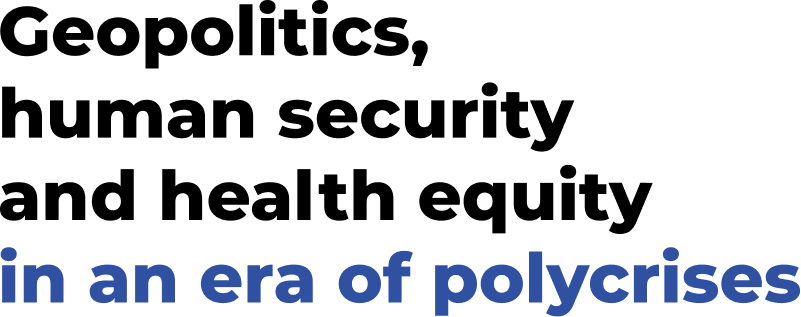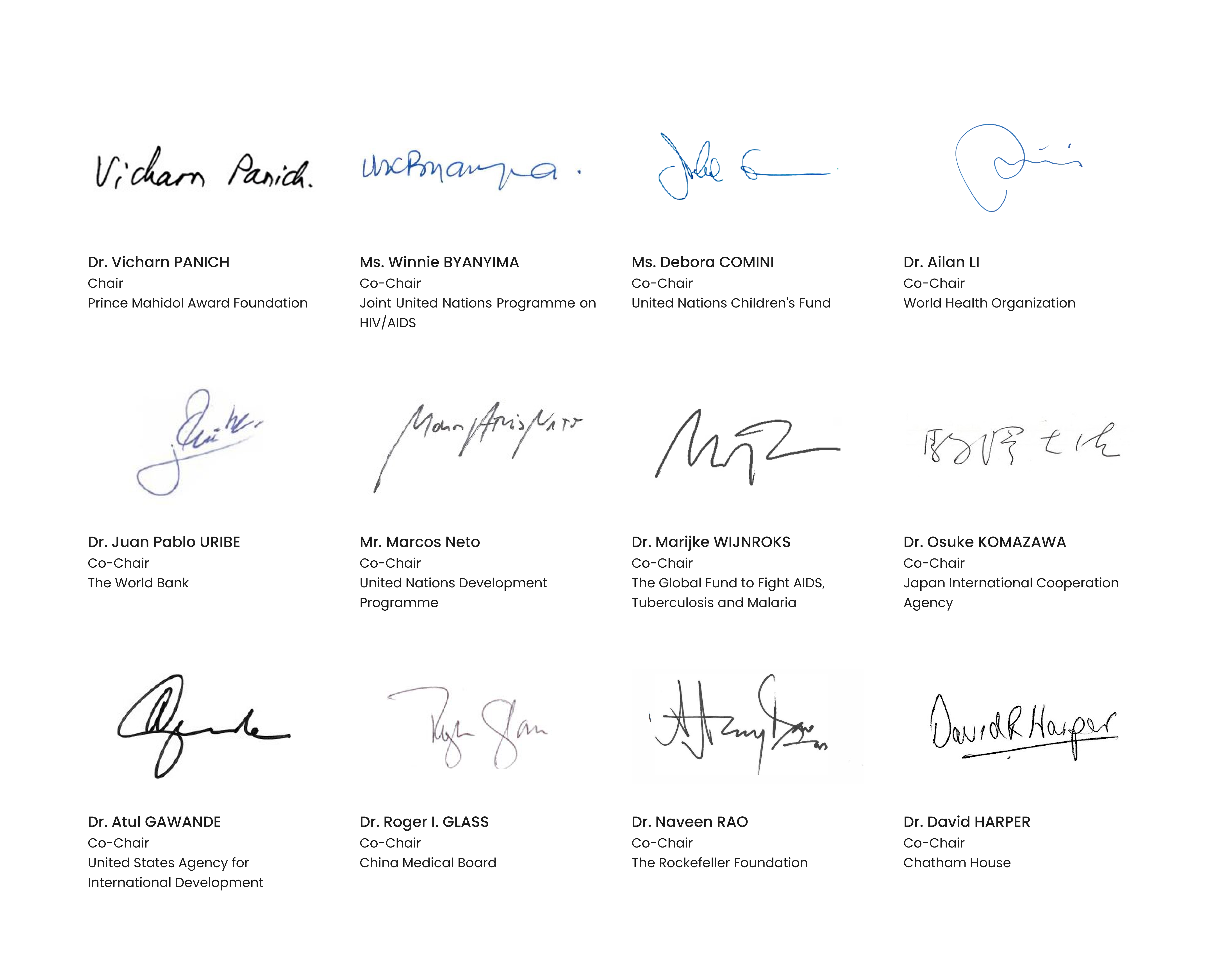

Geopolitics, often overlooked in the realm of global health, holds significant influence over the way we understand, address, and overcome health challenges...
Read More >
Centara Grand & Bangkok Convention Centre at Centralworld
Message from the Co-Chairs of the International Organizing Committee
People and planet are experiencing an unprecedented era of polycrises – interconnected and interacting threats of climate change, rising social and economic inequalities, political polarization, humanitarian crises, pandemics, violent conflicts – all negatively impacting health and well-being of people and planet and challenging the achievement of the 2030 Agenda for Sustainable Development and the Paris Agreement. Pandemic risk and inequalities are increasing, conflicts are on the rise and the climate crisis is accelerating. The need to respond is urgent, and the solutions must be sustainable.
Geopolitics impact health and shape the causes and consequences of polycrises. The COVID-19 pandemic has exposed and exacerbated the fragility of health systems and shown that health and well-being are critical to trust, solidarity and the legitimacy of governments and institutions. Access to life-saving HIV treatment and COVID-19 vaccines as well as the on-going negotiations of the Pandemic Accord have demonstrated that intellectual property rights (IPRs) and technology transfer represent a major unsolved issue at the nexus of geopolitics and health. Building on lessons from COVID-19 and the ongoing AIDS, TB and malaria pandemics, there is a growing understanding that health equity can play an important role in creating a fairer and more sustainable world for everyone, everywhere.
Challenges to international law and norms are growing, impacting health, health systems and human development. The global health governance landscape is shifting dramatically. Calls for critical reflections and reform of international governance mechanisms such as the United Nations and Bretton Woods institutions and global health architecture are growing. Moreover, the influence of transnational corporations has made it increasingly challenging for countries to prioritize health and well-being. Rightfully, more and more actors and institutions, including civil society and academia, from the Global South are asserting their legitimacy, voice and capacities in global health and development.
There is increasing recognition that widening and deepening inequalities, persistent power imbalances and the lingering impacts of colonization, racism and historic injustices are exacting an unacceptable toll on planetary health.
Geopolitics offers an important lens for understanding and responding to the economic, social and physical landscapes shaping human health and that of the planet. In a complex era of polycrises, a historic and contemporary analysis of geopolitics offers an opportunity to address the social, environmental, economic, commercial and political determinants of health for a fairer, more equitable and sustainable world for everyone, everywhere.
The Conference will provide a unique platform to understand the impacts and interactions of geopolitics on health. It provides an important opportunity for a range of stakeholders, including governments, multilateral institutions, academia, civil society, professional associations, philanthropies, faith-based groups, young people and the private sector to come together to discuss and debate innovative ideas and solutions and forge partnerships to address today’s complex health challenges. Collectively we have a historic opportunity to better address geopolitics and health equity in an era of polycrises in order to accelerate progress of the 2030 Agenda for Sustainable Development and the Paris Agreement. As the Co-chairs of this conference, we encourage all participants to take advantage of the opportunities PMAC 2024 has to offer. In addition to your participation in the Conference programme that includes renowned speakers, we encourage you to actively participate in the exciting range of pre-conference side-meetings where you will be able to delve into these interesting topics in greater depth.
Appreciation
We would like to express our appreciation and gratitude to the many individuals and organisations, whose tireless efforts helped bring the conference to life. We especially thank the Prince Mahidol Award Foundation and the Royal Thai Government for their exceptional support and leadership, as well as the PMAC Secretariat for their invaluable guidance, day-to-day support, and inspiring team spirit.
We look forward to welcoming you to Bangkok!


